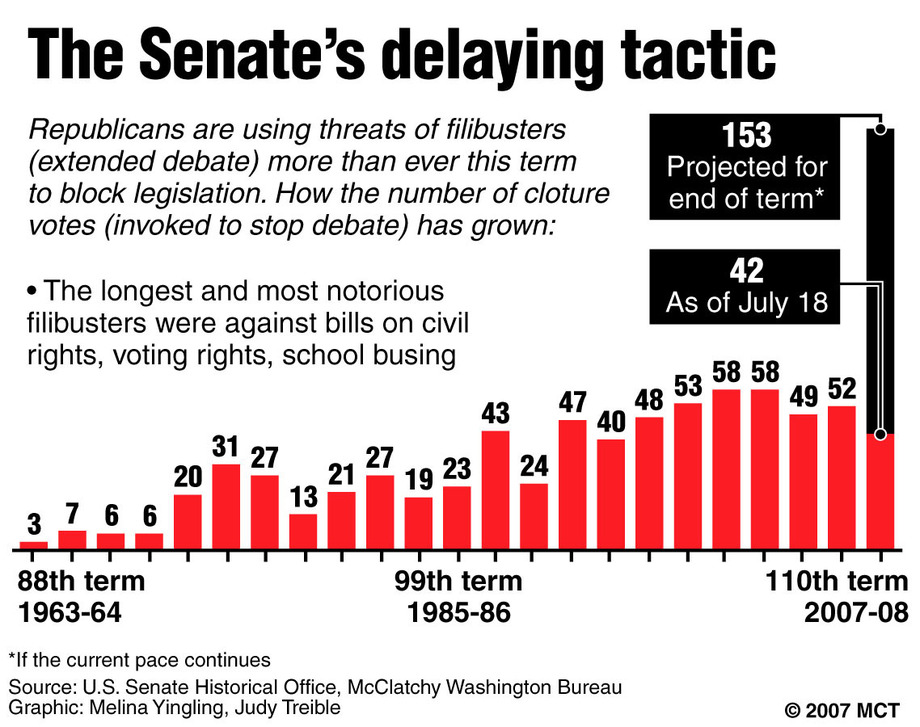Filibustering in the U.S. Senate (preventing a vote on a bill with continuous speech–or at least the threat of it, since often now a Senator just has to state that s/he intends to filibuster; if there aren’t 60 Senators to vote for cloture, they often just pretend the filibuster happened without making a person actually do it)–has been increasing over time:

Why? Greg Koger at the Monkey Cage has a fascinating explanation (via Matthew Yglesias):
So why did the Senate change? The stock answer is that the chamber’s responsibilities grew with the size and scope of the federal government, so it became more costly to sit around watching obstructionists kill time. There is some truth in that explanation. Also, however, senators’ work habits changed. The introduction of railroads, cars, and (especially) air travel made sitting around in the Senate chamber so…boring. Tedious. Totally lame. During the mid-20th century, the Senate increasingly became a Tuesday-Thursday club, and individual senators began insisting that major legislation be kept from the floor to accomodate their travel schedules. A serious attrition effort would mean cancelled speeches in Manhattan and Chicago, no trips to the Delaware coast, and waiting longer to return to the ranch back in Texas.
—————————
Lisa Wade is a professor of sociology at Occidental College. You can follow her on Twitter and Facebook.

Comments 4
George — September 5, 2009
Whatever the reason, I think requiring a 60 vote consensus in the senate is a great idea. Many political issues have become so polarizing that Americans split on them 50/50. It's not such a bad idea that the government should be prevented from enacting laws that fail to gain wide popular support. It protects the rights of the minority from the whims of the majority.
Regarding the irresponsibility of the congress, there's actually been quite a bit written lately about how executive power hasn't increased so much through the ambition of the administrations, but because congress has chosen to give up their authority in order to avoid blame for unpopular decisions. This poses, potentially, a significant threat to liberty.
Dave Munger — September 5, 2009
You're a Republican, right?
Would you have said the same thing 4 years ago? Didn't think so.